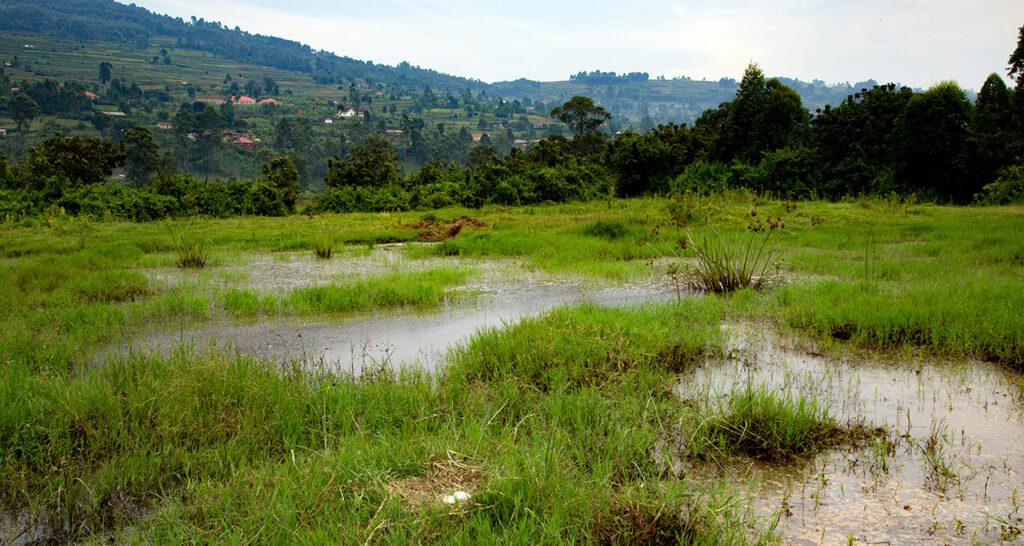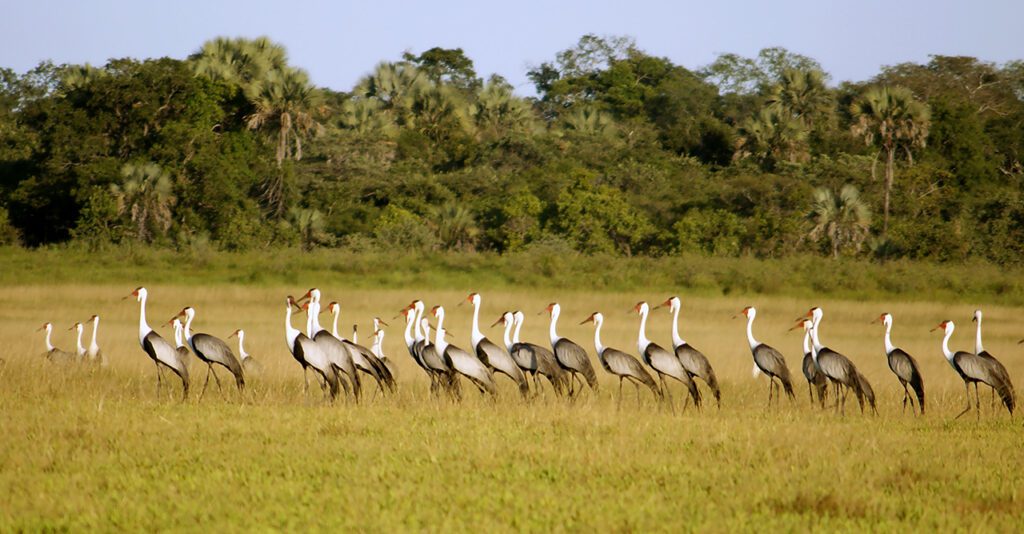Protecting Cranes, Supporting Communities
How Mattresses Are Saving Rwanda’s Rugezi Marsh
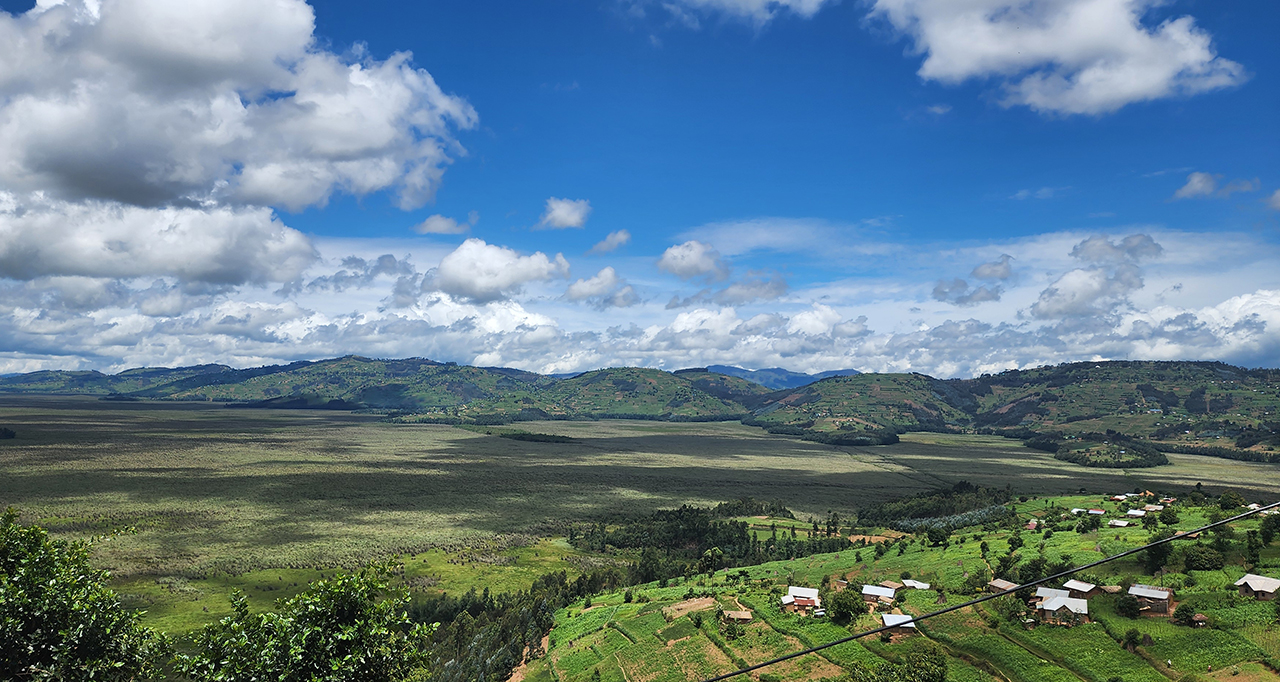
Rwanda’s Rugezi Marsh. Charles Kayijamahe/International Crane Foundation
Deep in northern Rwanda lies Rugezi Marsh, a 6,735-hectare high-altitude peatland that plays a crucial role in both biodiversity and people’s daily lives. The marsh is not only a breeding site for more than 25% of Rwanda’s Grey Crowned Crane population, but it also regulates the water flow to Burera and Ruhondo lakes—vital sources of the country’s hydroelectric power.
For years, however, the marsh has faced a quiet but serious threat: grass harvesting. Local families traditionally cut marsh grasses to weave mats for sleeping. While affordable, this practice disturbs cranes during their breeding season and gradually degrades the fragile wetland.
Turning Mats into Mattresses
To address this challenge, the International Crane Foundation in Rwanda and partners took a simple yet powerful approach: replace traditional grass mats with modern mattresses.
In 2023 and 2024, with support from the Kansas City Zoo & Aquarium, we distributed 600 mattresses to 200 households. This year, thanks to generous funding from Diane Crookham-Johnson and Blank Park Zoo, we expanded the initiative, reaching an additional 174 households in Gatebe Sector, one of the eight sectors bordering Rugezi Marsh.
On August 12, 2025, we hosted a mattress distribution event in Gatebe, working alongside local authorities and community leaders. Together, we delivered 321 mattresses to the most vulnerable families—ensuring parents and children alike could sleep better, while reducing the pressure on Rugezi’s grasses.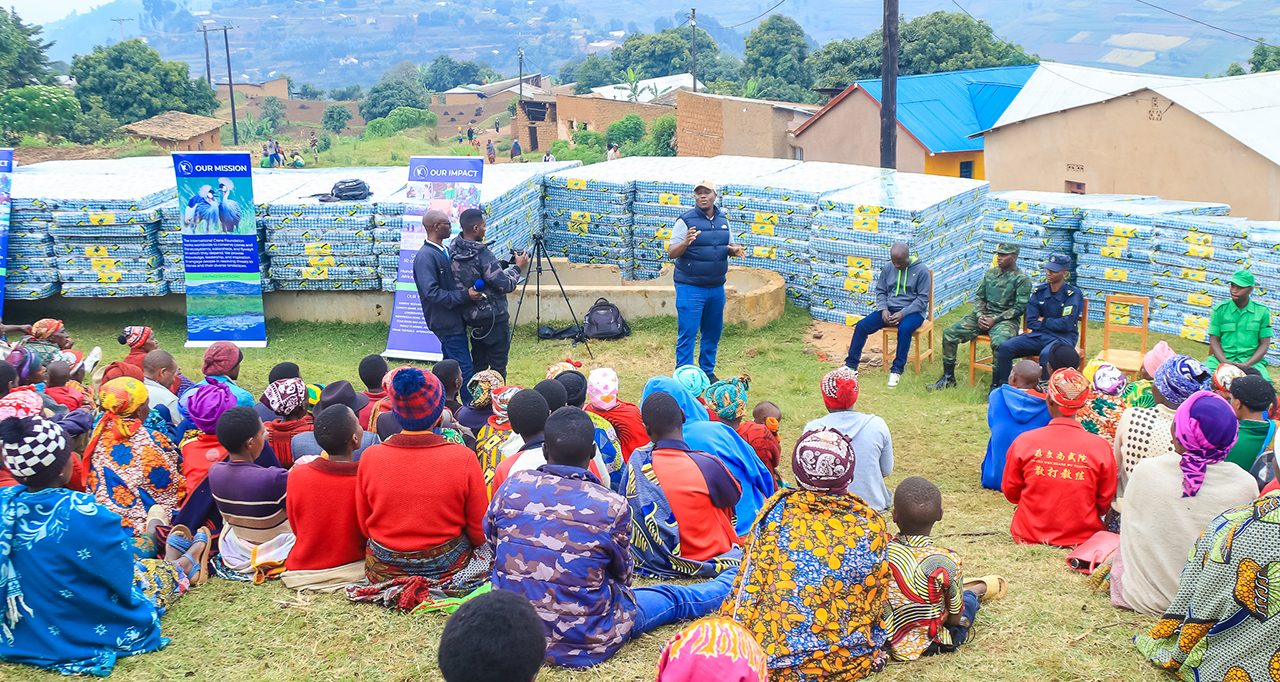
International Crane Foundation photo
Choosing Who Benefits
To ensure our intervention directly addressed the greatest threats to Grey Crowned Cranes, we began by analyzing data provided by our partner, the Rwanda Wildlife Conservation Association (RWCA). This helped us identify Gatebe Sector, one of the eight sectors surrounding Rugezi Marsh, as a hotspot for illegal grass harvesting.
Working in collaboration with Gatebe Sector authorities, we adopted a participatory and transparent selection process. Using the government’s household profiling data, we focused on families lacking basic necessities—especially bedding and mattresses—as these households were most at risk of harvesting grasses from the marsh. The profiling had identified 1,032 households without mattresses, giving us a reliable starting point.
From there, we worked closely with community leaders to verify and validate the information through household visits and community consultations. This ensured that the process was grounded in both data and local knowledge.
Through this collaborative effort, we established a final verified list of 174 households—families selected based on genuine need and community consensus.
Beyond Mattresses: A Holistic Approach
The mattress project is part of a bigger vision for community wellbeing and crane conservation. At Rugezi, the International Crane Foundation is also distributing energy-saving stoves—cleaner, more efficient alternatives that reduce indoor smoke, cut down fuelwood demand, and preserve the marsh’s protective buffer strip.
Together, these interventions are reshaping lives:
- Families sleep better, boosting health, dignity, and school attendance.
- Parents save time once spent harvesting grass, freeing them to pursue other income opportunities.
- Cranes find safety, with fewer people entering the marsh during their critical breeding season.
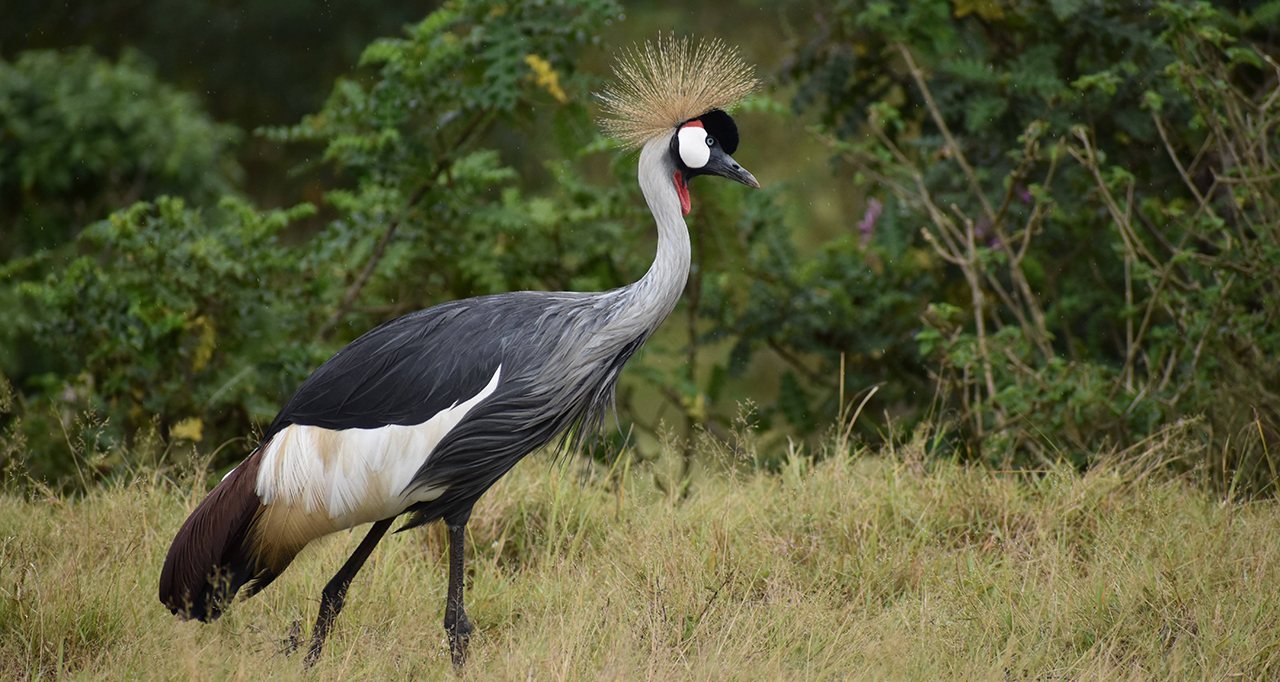
Diana Boon/International Crane Foundation
A Win for People and Nature
This initiative demonstrates how conservation can go hand-in-hand with human wellbeing. By replacing marsh grass mats with mattresses, families enjoy comfort and health, while the Endangered Grey Crowned Crane gains a safer habitat.
The success of this program would not have been possible without the unwavering support of our partners. We are deeply grateful to Kansas City Zoo & Aquarium, Blank Park Zoo, and Diane Crookham-Johnson for their generosity. Their contributions are sparking real change—allowing children to sleep soundly, parents to work safely, and communities to become stewards of the marsh they depend on.
Looking Ahead
Rugezi Marsh is a national treasure—for cranes, for energy, for people. Protecting it requires solutions that balance conservation with community needs. This initiative is proof that when we care for people, we also care for nature.
With every mattress distributed, we take a step closer to a future where cranes thrive, wetlands remain intact, and families live healthier, more dignified lives.
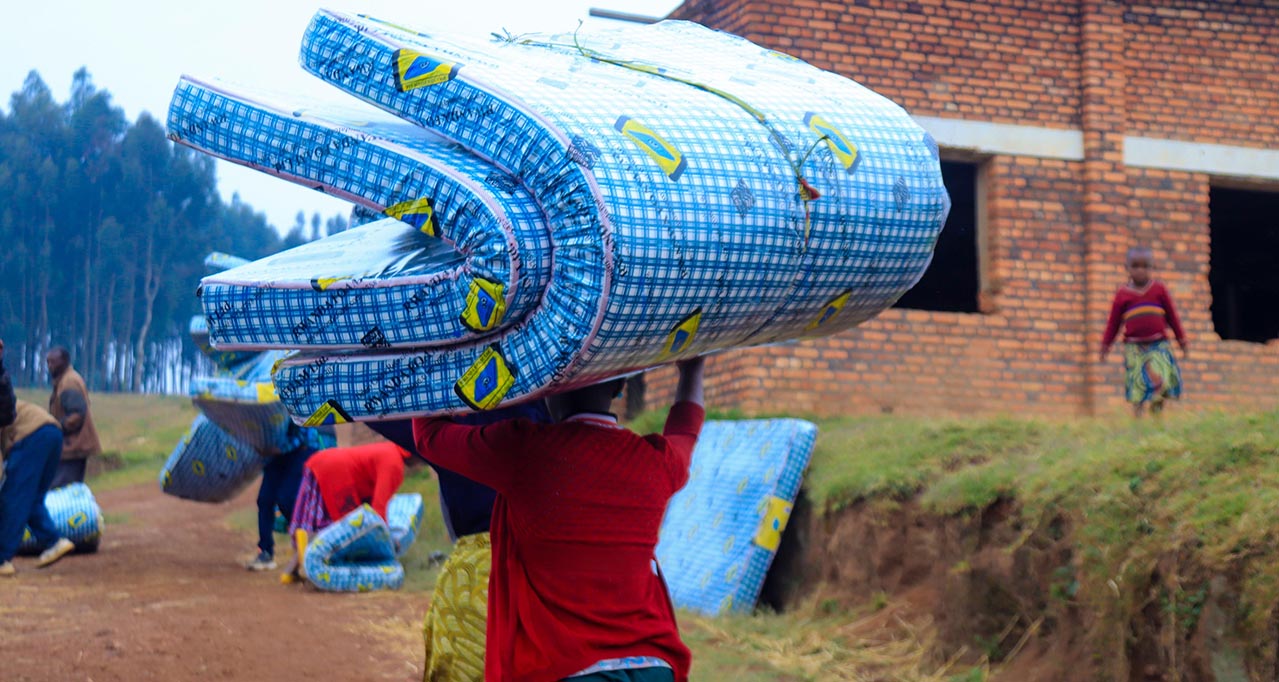
International Crane Foundation photo

